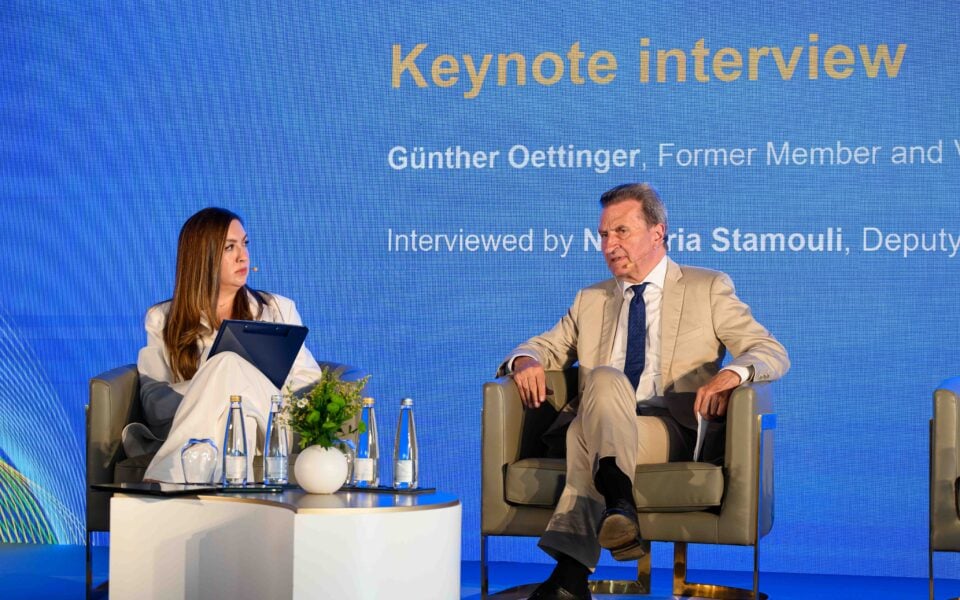Former energy commissioner Gunther Oettinger said that the European Union should have ambitious but realistic goals when it comes to energy transition to make sure not to lose competitiveness.
“Energy policy has to be a triangle: security of supply, sustainability, and affordability,” he said during a discussion with Kathimerini English Edition Deputy Editor Nektaria Stamouli on the opening day of the two-day “Energy Transition Summit: East Med & Southeast Europe” held by the Financial Times and Kathimerini in Vouliagmeni.
Oettinger added that in the previous years, the EU was focused only on sustainability, which led to a loss of competitiveness.
“Europe is stagnating, and energy prices are part of the stagnation. The world is growing about 3% per year, Europe less than 1%, our energy costs are too high,” said Oettinger, adding that importing LNG has increased the energy costs.
“No wonder our energy-intensive industries can’t survive producing in Europe.”
According to Oettinger, Europe should also focus on competitiveness and be realistic with its energy transition legislation, such as the Green Deal, in order for enterprises to be able to keep up.
“It’s super bureaucratic, mainly for SMEs (small and medium-sized enterprises), it’s impossible to fulfill all obligations coming from European legislation. We should be ambitious but realistic.”
Moreover, Oettinger said that Europe cannot serve as the global model for energy transition, as other countries bear greater responsibility.
“[Green energy] transition is a global transition. Europe should be ambitious but not a model for the world,” said Oettinger, adding that the EU is responsible for only 7.5% of CO₂ emissions globally and that China, the US, and India are responsible for more greenhouse gas emissions than Europe.
He noted that the EU should also start planning how to decrease energy costs.
“We should see how to decrease the cost, maybe by our own fracking or by our own raw and rare materials, not just importing.”
According to Oettinger, the key to Europe achieving energy security is diversification, giving the example of the recent Iran-Israel war and the possibility of the Strait of Hormuz being closed.
“The key to energy is to diversify,” he said. “If we are diversifying, we can survive without imports via Hormuz.”
Oettinger also addressed the issue of raw materials and rare earth elements, saying that Europe should forge strategic partnerships with African countries to avoid dependency on China, which already has such agreements in place.
“Africa is, after all, our neighboring continent, so it should naturally be our ambition to establish partnerships for materials with African countries,” he said.
